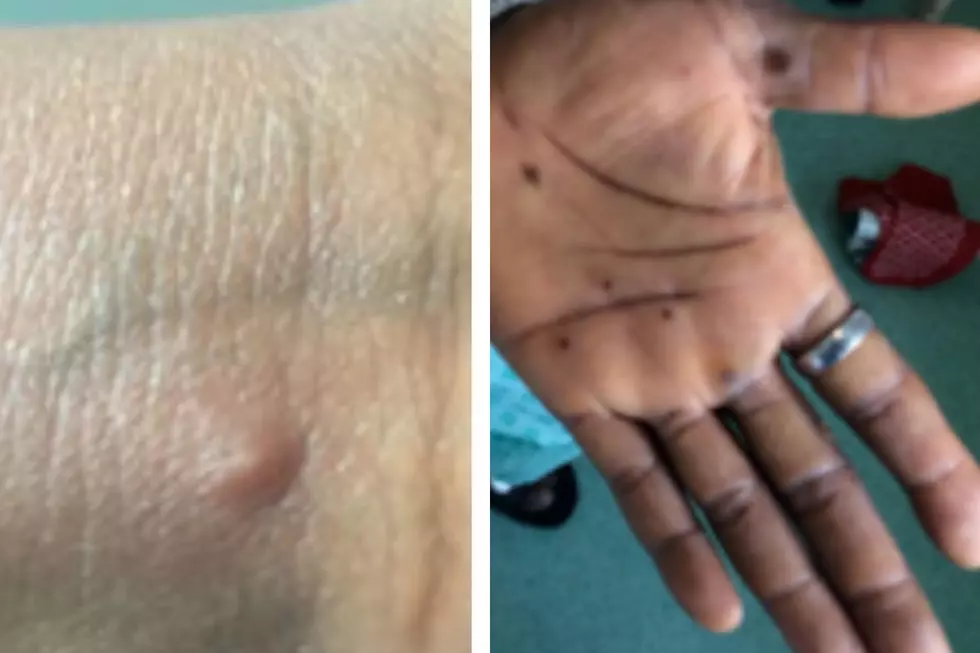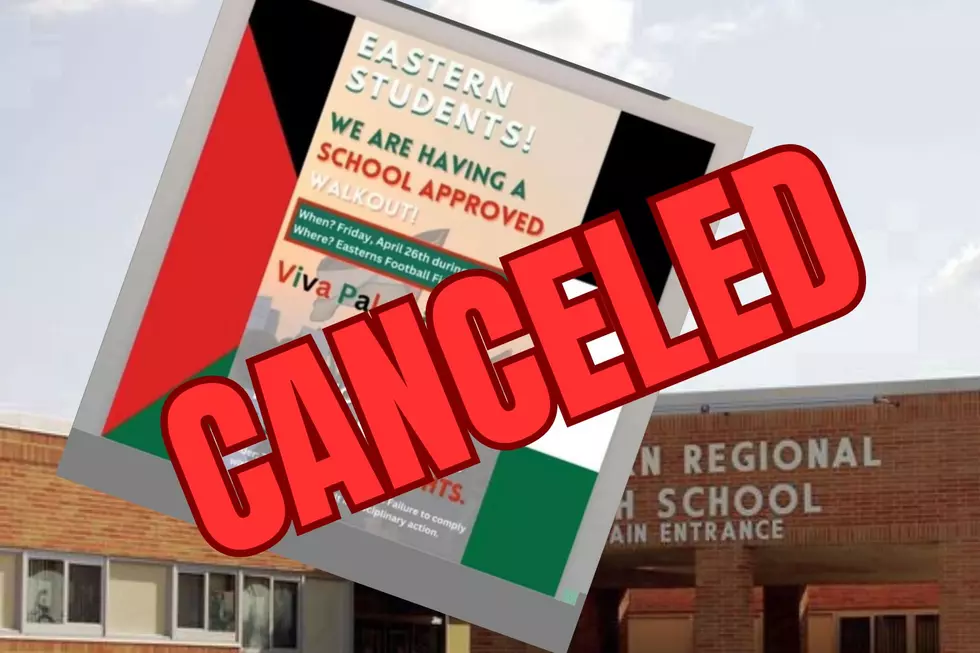
Monkeypox Testing, Vaccines in NJ: FAQs on Treating the Virus
Cases of monkeypox have been slowly increasing since the first U.S. patients were confirmed in May.
As of mid-July, New Jersey health officials reported at least 31 probable or confirmed cases, while the Centers for Disease Control and Prevention had reported more than 1,000 total confirmed monkeypox/orthopoxvirus cases.
Monkeypox is a disease that frequently involves a rash, which may look like pimples or blisters, often with an earlier flu-like illness. It can spread to anyone through close, personal, often skin-to-skin or sexual contact.
The first New Jersey case of monkeypox was identified in Hudson County in late June.
Camden County has seen at least two cases — one confirmed and a probable case reported on Wednesday. The county has also been designated by the state as a regional vaccine storage hub.
Who can get monkeypox?
Anyone can get monkeypox and there has been repeated caution not to stigmatize any particular communities.
While anyone can get monkeypox, most current cases have been men who have sex with men, as reported recently by the New York City Health Department and repeated by officials in Hoboken — which said there were no known cases within the city as of mid-July.

When asked for a gender breakdown of NJ confirmed cases, state health officials said that with the count "so low" they were unable to provide such information due to privacy concerns.
The virus — which does not spread exclusively through any one gender, sexual orientation or social network, as state health officials in North Carolina made clear in their public awareness campaigns — enters the body through broken skin, or mucus membranes such as the eyes, nose, mouth or genitals.
Testing and vaccines both appeared to be ramping up, though some patients who have spoken publicly about their recent experiences have voiced concern for a seemingly slow response when it comes to both.
What’s it like to have monkeypox?
In a collective report that drew from about 18 patients, NBC News said that a high fever and intense headache were among the first symptoms, as well as lesions or a rash in the genital area of nearly all patients who went on record. All the sources were gay men who had sex with other men.
Depending on where lesions develop, some patients who spoke to NBC News said they had been suffering intense pain, including while relieving themselves, eating and/or swallowing, if the lesions were near or inside a person's mouth.
A monkeypox rash may initially appear similar to pimples, blisters, or raised bumps, and it may be accompanied by fever and chills, according to Englewood health officials, citing CDC guidance.
The rash starts flat then becomes bumpy and fluid-filled before scabbing over and resolving — over a period of 2-4 weeks.
Symptoms may appear 7-14 days after exposure, but could begin up to 21 days from exposure.
Rashes may be all over the body, including palms, feet, and head, or only on specific body parts such as the genitals or around the buttocks.
According to the CDC, an individual is contagious until all sores have healed and a new layer of skin has formed, which can take two to four weeks.
Where can I get tested for monkeypox in New Jersey?
The state Department of Health has an online map tool, by which users can type their address and find their local health department with contact information, including after-hours emergency number.
Additionally, a person can scroll through the statewide list of local health departments, linked on the same site.
As of July, most individuals were being tested at their primary care physician and those tests were being sent to outside labs, according to Camden County health officials.
A positive test result then prompts investigation by the local health department, which begins contact tracing to identify who is in need of vaccine and antivirals.
As of July 14, the state’s Public Health and Environmental Laboratories had approved 55 requests for testing and denied 46 that did not meet the necessary criteria, according to a health department spokesperson.
Determinations have been made on a case-by-case basis depending on how likely a diagnosis of monkeypox would be, while commercial labs — such as Labcorp and the Mayo Clinic — have also started testing for orthopoxvirus.
Secaucus-based Quest Diagnostics on July 13 announced a new automated PCR (polymerase chain reaction) test that it hopes can boost testing capabilities, to about 30,000 monkeypox virus tests a week by the end of July.
Federal health officials previously announced that Quest was among five laboratories selected to expand nationwide test capacity for monkeypox.
Quest was also validating the orthopoxvirus test from the CDC, with the goal to provide it as an additional test option in early August. Depending on demand, Quest can expand capacity for monkeypox testing across other advanced laboratories in its national network.
Is there a monkey vaccine? Where can you get the monkeypox vaccine in New Jersey?
While there are vaccines for monkeypox, they currently being used for people who test positive for the virus or who might be at risk after coming into contact with someone who contracted it.
Getting vaccinated against monkeypox within four days of exposure might prevent symptoms — if given within five to 14 days, it may at least lessen symptoms, according to CDC protocol for post-exposure prophylaxis (PEP).
Camden County has been designated as a regional storage hub for the monkeypox vaccine and had roughly 60 doses on-hand as of mid-July, with expectation that the supply would be increasing, according to a spokesperson.
That means regional health departments in South Jersey with cases and close contacts can work with county public health officials for vaccine distribution.
Hudson County also has been designated a regional vaccine storage hub, according to health officials there.
It is not available to the general public for prevention in people without symptoms.
Only the state Department of Health can distribute the vaccine after determination of eligibility and review of clinical findings.
Two vaccines licensed by the Food and Drug Administration have been available for preventing monkeypox infection – Jynneos (also known as Imvamune or Imvanex) and Acam2000, under CDC guidance updated in late June.
Thousands more doses of the Jynneos vaccine were expected to soon begin shipping to the U.S., as federal health officials have completed an inspection of the plant where they were manufactured in Denmark.
The U.S. government purchased more than 1.1 million completed doses made by Bavarian Nordic. The company said it needed authorization from an on-site FDA inspection — which the Associated Press on Thursday reported was completed.
In New Jersey, the first monkeypox vaccine (Jynneos brand) was administered in early July by Summit Health, after two family members had been in close contact with a person who shortly after tested positive for the virus.
In that case, the vaccine was coordinated by local, state and federal officials securing the needed doses and administering the first shots.
While Acam2000 and Jynneos are the only two licensed smallpox vaccines in the U.S., the Strategic National Stockpile also includes a third vaccine.
Aventis Pasteur Smallpox Vaccine (APSV) is an investigational vaccine that may be used in a federally-designated emergency (by either an Investigational New Drug application or Emergency Use Authorization).
Is there a therapeutic and where can you get it?
The FDA-approved antiviral tecovirimat can be used for treatment of smallpox, but its use for other orthopoxvirus infections, including monkeypox, has not yet been FDA approved, as of mid-July.
It can be used under an expanded access Investigational New Drug (EA-IND) protocol by the CDC for treatment of non-variola orthopoxvirus infections, including monkeypox, in adults and children.
The NBC News report involving 18 patients included a couple who had been taking tecovirimat, with anecdotal evidence that it might shorten the length of viral infection.
In addition to tecovirimat, brincidofovir and cidofovir are other antivirals that might be used to treat monkeypox patients, according to the National Institute Of Allergy And Infectious Diseases.
There were no publicly disclosed details about antiviral access or supply statewide.
As of mid-July, there was no specialized statewide process for testing or treatment of monkeypox. The first point of order was to call a person’s health care provider and the local health department.
LOOK: What are the odds that these 50 totally random events will happen to you?
Here's where NJ legal weed is sold
More From WPG Talk Radio 95.5 FM










